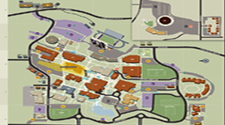Your passion for the environment could lead to a career as an environmental geologist or scientist, using your knowledge of geologic processes and the natural sciences to protect human health and environmental quality. Environmental geologists in the private sector work to clean up polluted areas and help industries to reduce waste and pollution. Government agencies also need environmental professionals to enforce regulations and to advise policy makers.

What Career is Right for You?
According to the Bureau of Labor Statistics, earth and environmental science jobs are expected to increase during the next decade faster than most other industries...and many earth and environmental scientists wear jeans to the "office!"
In addition to gaining GEO knowledge, Earth and Environmental Science majors develop critical-thinking, problem-solving, and teamwork skills -- all of which are in high demand by potential employers, regardless of the specific job within the earth and environmental sciences workforce.
Nationally, almost half of the earth and environmental scientists employed after earning their bachelor's degree work in the oil & gas or mining industries and another 20% find employment with environmental consulting companies. Approximately 1 in 10 earth and environmental science graduates at the bachelor's level goes to work for a government agency (local, state, or federal). About 25% of recent WSU Earth and Environmental Science graduates found employment with environmental or engineering consulting companies, and another 20% went to work in the mining industry.
Employment of earth and environmental scientists nationally is projected to increase 16% by 2022, faster than the average growth for all occupations. This job growth is being driven by the increasing need for energy solutions, a clean and protected environment, and responsible land/resource management.
What will you do with your Geoscience Degree?
Earth is Calling...Will You Answer?
Watch this exciting video about why the world needs more Earth and Environmental Science graduates.
Now more than ever Earth is calling...will you answer?
Alum, Cindy Gothber Shares Her Story
Cindy was a Geologist at TerraTek/Schlumberger in Salt Lake City and Alumna of WSU Earth and Environmental Sciences (formerly Geosciences) Department (AEG, Class of 2003) when she shared her story. She currently is a Geologist with the Department of the Interior in Colorado.
Career Opportunities
Environmental Professions
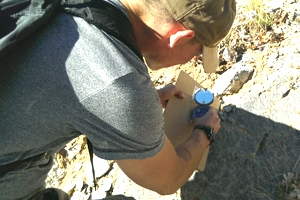
Environmental Geologists
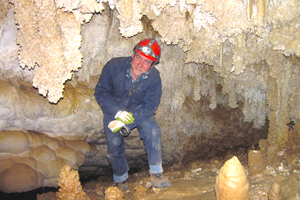
Hydrogeologists & Hydrologists
Are you concerned about the future of our water resources? Hydrogeologists use their knowledge of the distribution, circulation, and physical properties of water, both at the surface and as groundwater, to protect the quality and availability of this vital natural resource. For most jobs, hydrologist needs a master's degree and a strong background in mathematics.
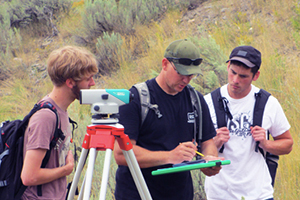
Engineering Geologists
Are you a builder? As an engineering geologist, you'll apply your knowledge of geologic materials and processes to help locate and design large construction projects, such as roads, buildings, airports, tunnels, dams, and bridges. By reducing the risk from hazardous geologic processes, both environmental and engineering geologists contribute to public safety and the protection of property.
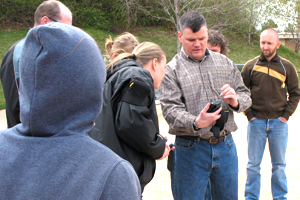
Cartographer
Industries need employees with computer skills and a knowledge of Geographic Information Systems (GIS). A GIS builds a database of observations or measurements tied to a specific location on Earth's surface and uses the "geospatial" data to answer questions and solve problems, such as developing land-use plans and policies to avoid local geologic hazards. All of the Geoscience degree programs allow students to explore and develop their GIS skills.
Resource Geology
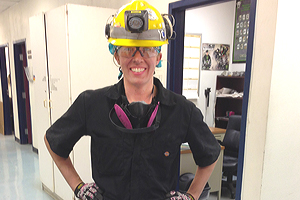
Mineral Mining Geologists
Your knowledge of ore deposits can help mining companies explore areas across the world for valuable minerals and rocks.
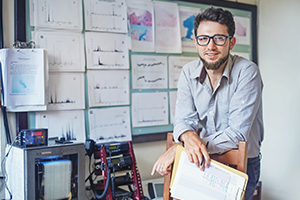
Petroleum Geologists
Are you an explorer? Finding and producing sub surface accumulations of crude oil and natural gas takes a wide range of geoscience skills and knowledge, along with a knack for thinking in 3 dimensions.
For most jobs, petroleum geologists need a master's degree and a strong background in the origin of sedimentary rocks and subsurface mapping.
Careers in Education
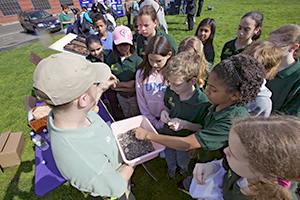
Earth Science Teacher
Do you have a passion for helping young people learn the wonders of science? Earth Science teachers will play a vital role in preparing and inspiring the next generation of scientists, engineers, and mathematicians.
Earth Science Teaching (BS) majors find employment in secondary education; middle-school science teachers, teaching 9th-grade Earth Science course, as well as 7th- and 8th-grade integrated science.
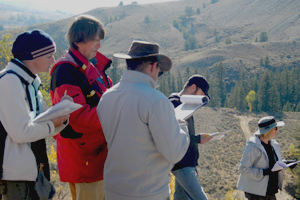
College or University Teaching
Perhaps you have the desire to pursue a career of active, cutting-edge research, that includes teaching at the university level. Research and teaching at this level generally requires a doctorate degree(Ph.D.)
College teaching positions are very competitive, and dedication to active research and excellent teaching are a must.

Informal Science Educators
Another way you could use your geosciences degree is to work for the education or outreach department of a museum, nature center, or science centers. You could be a permanent employee, or on contract to develop and run programs and activities for people of all ages, from the young to the young at heart.
Learn More
 WSU CAREER SERVICES
WSU CAREER SERVICES
Career Services works hard to provide all WSU students with the resources needed to find, interview for, and gain employment. Every student should be exploring their site and taking advantage of their excellent opportunities.
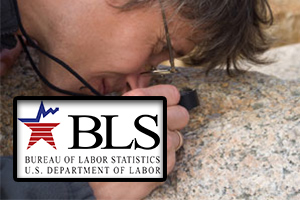 BUREAU of LABOR STATISTICS
BUREAU of LABOR STATISTICS
Visit the BoLS to learn even more about geoscience and environmental careers. There, you'll find in-depth job descriptions, including typical work environments, expected salaries, and job outlooks.
To get started, try these: ♦ Geoscientist ♦ Environmental Scientist ♦ Hydrologist
Mailing address
Weber State University
College of Science
1415 Edvalson St., Dept. 2507
Ogden, UT 84408-2507
